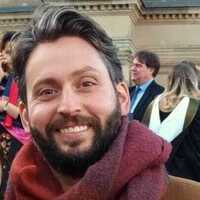Menu
- People
- Curriculum
- Foreign Study
- News & Events
Back to Top Nav
Public lecture by Luke Kersten, University of Alberta

Luke Kersten, University of Alberta
Friday, Jan. 12, 2024
3:30 PM
Rockefeller Class of 1930 room
Free and open to all
Talk title: The Problems of Cognitive Science: A Functionalist Approach
Abstract: The landscape of contemporary cognitive science is dotted with numerous research paradigms, from ecological psychology and cognitivism to Bayesianism and embodied cognition. These paradigms not only help to identify the set of entities available for study within the domain, but also the methods and procedures by which investigations are carried out, playing a foundational role in cognitive science. However, it is not entirely clear how cognitive scientists should decide which paradigms to accept, or what it would mean for one to be more worthy of pursuit than another. This is a problem insofar as researchers should be incentivised to accept only those paradigms which result in greater scientific progress. In this talk, I aim to sketch a conceptual model for the evaluation and selection of research paradigms in cognitive science, what I call the “Problem Solving Model of Paradigm Evaluation” (or PSE for short). Following earlier functionalist approaches, I argue that the epistemic value of a research paradigm depends on the extent to which it facilitates problem solving. The greater number and weight of problems a research paradigm helps to solve, the more worthy of acceptance and pursuit it is. The aim is to provide a much-needed decision procedure for paradigm evaluation. After outlining the PSE, I apply the model to the current debate between embodied cognition and predictive processing.
Luke Kersten is a Killam Postdoctoral Fellow in the Department of Philosophy at the University of Alberta.
Funding generously provided by the John Sloan Dickey Center for International Understanding, the Leslie Center for the Humanities, and the Cognitive Science Program.
Events are free and open to the public unless otherwise noted.